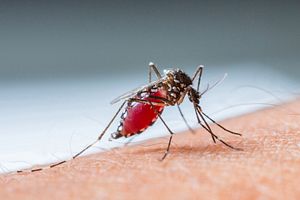The ASEAN Open Skies Policy achieved full ratification in May, with Indonesia and Laos being the last two countries to sanction the agreement. With this, airlines from all 10 member states can now fly freely throughout the region.
Asian travellers have started to take advantage of the increased connectivity and lower ticket prices. A survey by FT Confidential Research of 3,000 consumers in Indonesia, Malaysia, the Philippines, Thailand, and Vietnam showed that the new Filipino and Vietnamese middle classes have been flying in ever-greater numbers within the region over the last two years. With plans for open skies between Europe and Southeast Asia in the works, one can only expect greater future demand for air travel between these regions.
This is good news for regional tourism, which contributed 12 percent of Southeast Asian countries’ gross domestic product (GDP) in 2014. However, it is bad news for dengue control.
Before global air travel took off in the 1970s, infectious diseases were mostly confined to specific geographies due to transportation limitations. No such barriers exist today. Commercial flights are vessels for the international spread of diseases. With increased travel under open skies agreements, dengue is set to join the list of diseases spread by air travel, which already includes measles, influenza, and severe acute respiratory syndrome (SARS). As Asia bears 70 percent of the world’s dengue burden, infected travelers to and within the region are likely to facilitate the wider spread of the disease by introducing the virus to local vector populations in their destinations or home countries.
Outbreaks of dengue severe enough to affect tourism would result heavy revenue losses. Studies show that Thailand could stand to lose $363 million if tourism from non-dengue endemic countries declined by just four percent. This is a conservative estimate – when SARS hit Asia, it caused a 35 percent drop in tourism in Thailand and a 30 to 40 percent fall in tourist arrivals in Singapore. Experts predict that Thailand could see a mega-outbreak this year comparable to 1987’s epidemic, which saw more than 174,000 infections and claimed 1,007 lives. Such an outbreak would have considerable impact on Thai tourism, and wider repercussions on the economy.
It is critical for Southeast Asian governments, particularly those with tourism as an economic mainstay, to get the disease situation under control. However, investing heavily in prevention methods has not been as effective as hoped. For instance, Malaysia saw an increase in cases year-on-year from 39,597 to 45,037 between 2009 and 2010, and an increase in the number of deaths from 84 to 133, despite spending $73.5 million or 0.03 percent of the country’s GDP on its National Dengue Vector Control Program in 2010. Clearly, vector control alone is not enough.
Governments should not wait to count the cost of major outbreaks before taking action, but cooperate to build on existing efforts with a view towward limiting dengue transmission risks related to increased intra-regional and international air travel. With dengue on the rise with every passing week, the time to act is now.
The Sixth Association of Southeast Asian Nations (ASEAN) Dengue Day, June 15, is an opportune time for governments to renew their commitment to tackling the problem on their own as well as through mutual collaboration to introduce new tools such as the dengue vaccine on a regional level.
Countries should also continue to work together on innovative public education campaigns such as the Dengue Mission Buzz Barometer, a new tool by the Asian Dengue Vaccination Advocacy group to measure the ASEAN community’s engagement in dengue prevention. Such efforts will keep dengue in the public’s consciousness and go further in minimizing the spread of dengue than sole reliance on sporadic and individually undertaken vector control. Only when everyone in the region is aware of and acts to prevent dengue can we see reduced transmission even as people fly more freely within and between countries.
Professor Tikki Pang is presently Visiting Professor at Lee Kuan Yew School of Public Policy, National University of Singapore. He was previously Director or Research Policy & Cooperation at the World Health Organization (WHO), Geneva, Switzerland

































